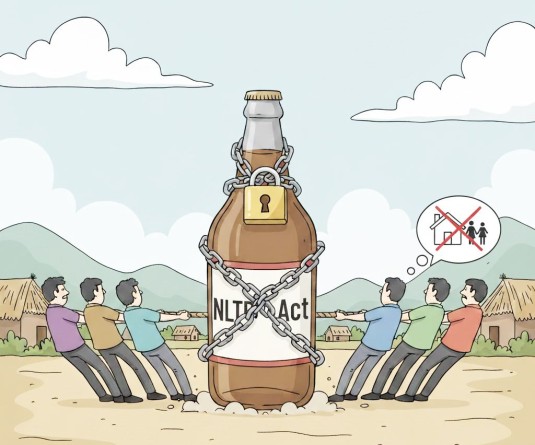
Morung Express News
Kohima | October 10
“Mental illness is a reality. It’s just that enough research work have not been done to give us numbers and statistics of where Nagaland stands. But I can say for sure that many are suffering silently at homes,” asserted Clinical Psychologist Themmungla speaking at the observation of the World Mental Health Day on October 10 at the State Mental Health Institute Kohima under the theme ‘Mental Health in the work place’.
Although work is integral for survival and financially crucial, Themmungla impressed on the essence of finding purpose and meaning and the need to belong and stay connected in one’s workplace. In an adult’s lifetime, a large proportion of time is spent at work.
“Our experience in the workplace is one of the factors determining overall well being. Mental illness has a significant impact on our society individually, socially and economically. This is why it is important for all individuals in the workplace to be aware of potential contributing factors to mental health issues and strategies to maintain a positive pathway to mental health and encourage early reporting of symptoms,” stated the Psychologist. The risk factor differ in every workplace but commonly include individuals having a lack of autonomy in their role, poor job clarity, a lack of training/knowledge to do their role or working in isolation.
Speaking through experiences, the Psychologist reminded that the lack of awareness and insensitivity at workplace makes it harder for people suffering from mental illness to open up. Therefore, objectives and implementations strategies to promote good mental health in the work place needs to be initiated. These, according to Themmungla, includes addressing social determinants of mental health such as living standards and working conditions, activities for promotion of health and mental health including activities to reduce stigmatization and discrimination.
“Mental illness can be frightening and lonely place, and many people struggle to keep going to work and hide their mental health problems through fear of stigma and discrimination. We need to advocate the importance of mental health in our government setups, private setups, school colleges because when we do we will begin to see changes individually, socially and economically,” asserted Themmungla.
Opening the event with a welcome address, Dr. T Wabang, Medical Superintendent highlighted the objectives of the observation which is to create awareness about the mental issues and mobilizing support on mental health. “In India, one out of four persons is likely to develop mental problems in their lifetime. About one percent of the Indian population suffers from severe mental disorder and around 10 percent suffers from minor mental problems.
If we are to project it into actual figures, around 9 million people in India suffer from severe mental health while 90 million are afflicted with minor mental disorders,” stated Dr. T. Wabang who however mentioned that only a few are treated.
The major factors for not availing treatment are the lack of awareness, stigma, ignorance, and misconceptions on mental health. “We can remove this barrier by educating the people that mental illness is the same as any other illness. If they are treated they can lead normal lives. The earlier we treat them, the better the outcome,” added Dr. Wabang.
During the commemoration, special songs were presented by inpatients and staff of the SMHI while short speeches were also delivered by Dr. Khriezotuo, State Program Officer (NMHP) and the District Legal Services Authority Kohima.
The day marks the 25th year dedicated to raising awareness of mental health issues, and to fighting the still associated stigma.
The following warning may indicate a person going through mental illness
• Constant feelings of sadness or discouragement
• Sleeping too much or not at all
• Withdrawing from work or colleagues, friends and family
• A decline in work habits or performance
• Increase in the use of alcohol, drugs or medications
• Emotional outbursts • Commencement or an increase in the intensity of work or family issues
• Increase or commencement in the severity of physical problems


.jpg)


.jpg)
